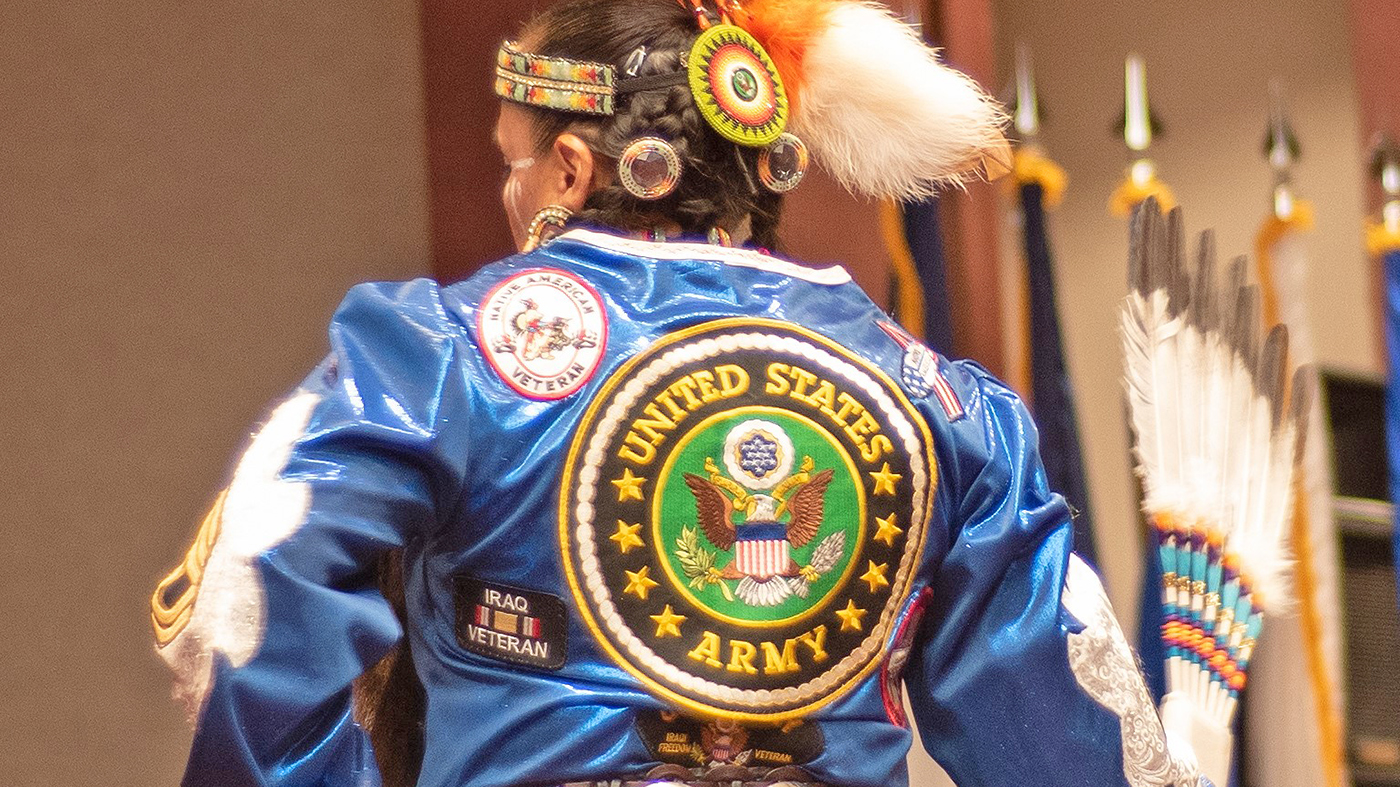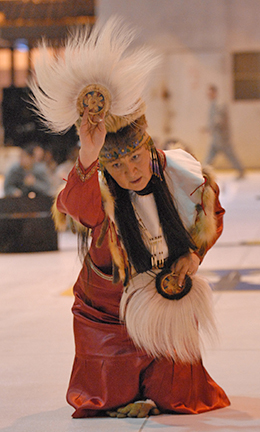At VA, our mission is to care for those “who shall have borne the battle” and for their families, caregivers and survivors. Our mission is your well-being. We’re committed to making sure all Veterans live their best lives and that includes prioritizing cancer screenings.
Drawing inspiration from a legacy of valor, American Indian/Alaska Native Veterans have an exemplary tradition of military service and sacrifice. Today, there are approximately 160,000 American Indian/Alaska Native Veterans. While almost 41% of service-connected American Indian/Alaska Native Veterans use VA health care, data has shown that they are screened for some cancers at lower rates than other groups.
Closing that gap is important because regular early screenings can detect cancer when it is more likely to be treatable or prevent it from developing further.
VA is actively committed to reaching the American Indian/Alaska Native Veteran community. VA understands there may be hesitancy, and it is working to build trust and environments conducive to healing. We want to deliver American Indian/Alaska Native Veterans the health care and benefits they deserve and earned.
“We’re committed to reaching Veterans and the communities that have given so much through their service in the Armed Forces,” said VA Office of Tribal Health Acting Director Dr. Christie Prairie Chicken.
VA is contributing to the Cancer Moonshot, which aims to reduce the cancer death rate by half within 25 years. A key component of the Cancer Moonshot is improving health equity in cancer care. For VA, this means working to provide all Veterans—regardless of their race, ethnicity, or background—with access to high-quality cancer care.
Improving cancer outcomes for American Indian/Alaska Native Veterans
One way VA is advancing health equity is by collecting and sharing data about the unique challenges American Indian/Alaska Native Veterans face in cancer care.
Roughly four in 10 American Indian/Alaska Native Veterans live in rural areas, more than Veterans of any other race, and they face barriers to care characteristic of rural communities, like health care services that are distant, rural hospital closures and other stressors.
These barriers may be exacerbated by social factors, like lack of culturally responsive care, such as when American Indian/Alaska Native patients’ concerns about confidentiality are not sufficiently addressed, when family and community are not included in health care conversations or when traditional healing methods are not integrated into a whole health approach.
Native American Veteran cancer screening and diagnosis rates
There are nearly 9 million Veterans receiving health care from VA. Of those, nearly 66,000 of them are American Indian/Alaska Native Veterans. Here’s what we know about the current state of American Indian/Alaska Native Veterans’ cancer screening and diagnosis rates in the VA system:
Colorectal cancer
- American Indian/Alaska Native Veterans receiving care with VA have a higher screening rate for colorectal cancer than their civilian counterparts.
- The odds of American Indian/Alaska Native Veterans being up-to-date with their screening is 23% less likely than their white peers.
- Colorectal cancer is a common but largely preventable cancer when screening is done regularly and consistently. Learn more by visiting cancer.va.gov.
Breast cancer
- Comparatively, American Indians/Alaska Native Veterans are diagnosed with breast cancer at a marginally higher rate than their white and Asian Veteran peers, and at a substantially lower rate than their Black and Native Hawaiian Veteran peers.
- Localized breast cancer has a 99% survival rate if detected early. Find more information about VA’s breast cancer screening efforts.
Prostate cancer
- Prostate cancer is the most diagnosed cancer within the Veteran population. For American Indian/Alaska Native Veterans, this means being diagnosed at a higher rate than their white and Asian Veteran peers, but lower than their Black and Native Hawaiian Veteran peers.
- Over 200,000 Veterans are prostate cancer survivors. Read more about if screening for prostate cancer makes sense for you.
Lung cancer
- American Indian/Alaska Native Veterans are diagnosed with lung cancer at a lower rate than their White, Native Hawaiian and Black Veteran peers. They are also diagnosed at a higher rate than their Asian Veteran peers.
- Lung cancer is the deadliest cancer among Veterans, but lung cancer screening can save lives. Learn about screening options at VA.
How to get screened for cancer at VA
VA providers work hard to ensure the proper cancer screening takes place and, if necessary, to find the best treatments for your cancer care needs while standing shoulder to shoulder with those Veterans every step of the way.
For more information on VA and cancer screening, visit cancer.va.gov.
For more about the recommended Screening Tests and Immunizations, visit:
Topics in this story
Link Disclaimer
This page includes links to other websites outside our control and jurisdiction. VA is not responsible for the privacy practices or the content of non-VA Web sites. We encourage you to review the privacy policy or terms and conditions of those sites to fully understand what information is collected and how it is used.
More Stories
Study underscores important role COVID vaccination can have in protecting Veterans from infection and reducing long-term health consequences
Columbia VA’s robotic surgery teams completed their 800th robotic surgery and are on schedule to hit 1,000 by the end of the year.
In a decentralized clinical trial, Veterans can participate from their own homes or local VA instead of having to travel to a research site.








Specifically to Ms. Linda Torres,
My thanks for this article but your numbers are a little off. According to DoD and VA, there are OVER 570,000 Native American Veterans. Some do not live on federally recognized tribal lands but they are all Veterans and should be referenced as such.
My Thanks again,
Respectfully,
Thomas E. Bandzul, Esq.
Veterans and Military Families for Progress.
Counsel@vmfp.org